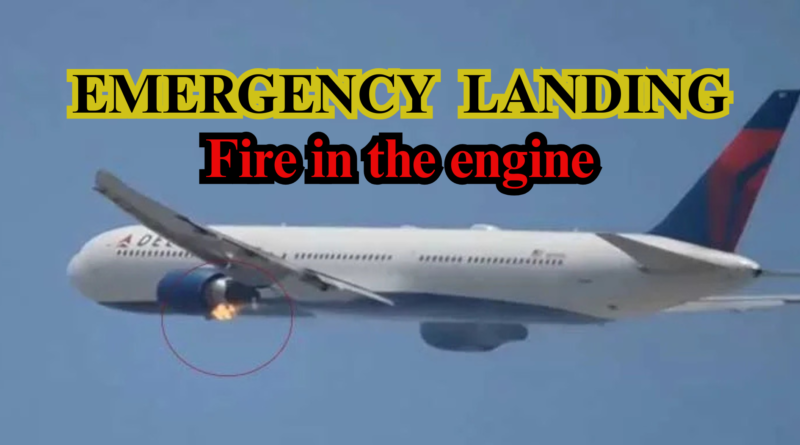Delta Airlines plane catches fire shortly after takeoff
A Delta Airlines flight experienced a terrifying moment shortly after takeoff when one of its engines caught fire mid-air. The incident occurred on a routine domestic flight from Atlanta, Georgia, bound for Fort Lauderdale, Florida. Passengers onboard reported hearing a loud bang followed by visible flames and smoke billowing from the right-side engine. The sudden fire prompted immediate concern and panic among those onboard, though the flight crew acted swiftly to maintain calm and safety.
The aircraft, a Boeing 737, had been airborne for only a few minutes before the pilot declared an emergency and requested immediate clearance to return to Hartsfield-Jackson Atlanta International Airport. Air traffic control responded promptly, prioritizing the flight’s landing as emergency services were dispatched to the runway. Passengers were instructed to remain seated with their seatbelts fastened while the crew prepared for an emergency landing. Despite the visible flames, the aircraft returned to the airport safely without any injuries.
Delta Airlines released an official statement shortly after the incident, confirming the engine fire and commending the flight crew for their rapid and professional response. The airline stated that all 168 passengers and crew members were unharmed and disembarked safely. Delta also assured that the aircraft would be thoroughly inspected by their maintenance team and Boeing engineers to determine the exact cause of the malfunction. They expressed regret for the distress caused to the passengers and offered compensation for the inconvenience.
A preliminary investigation suggests that a possible mechanical failure or foreign object ingestion may have triggered the engine fire. Experts from the Federal Aviation Administration (FAA) and the National Transportation Safety Board (NTSB) have been called in to assist with the investigation. Until a full report is released, the aircraft will remain grounded. This incident has reignited discussions around engine safety standards and the frequency of inspections for aircraft that are in constant operation.
Passengers shared harrowing videos and images of the incident on social media, showing bright flames flickering from the wing-mounted engine. Several passengers praised the calm demeanor of the flight attendants and pilots, which they said helped prevent panic during the ordeal. The professionalism of the crew has drawn public appreciation, highlighting the importance of rigorous training and preparedness for such high-stress scenarios.
While Delta Airlines is recognized for its strong safety record, this incident underscores the unpredictable nature of air travel and the critical role of quick decision-making by flight crews. The airline has vowed to cooperate fully with aviation authorities and pledged to implement any recommendations that arise from the investigation. For now, the aviation community will closely monitor the outcome of this case, hoping it contributes to improvements in passenger safety and aircraft reliability.




